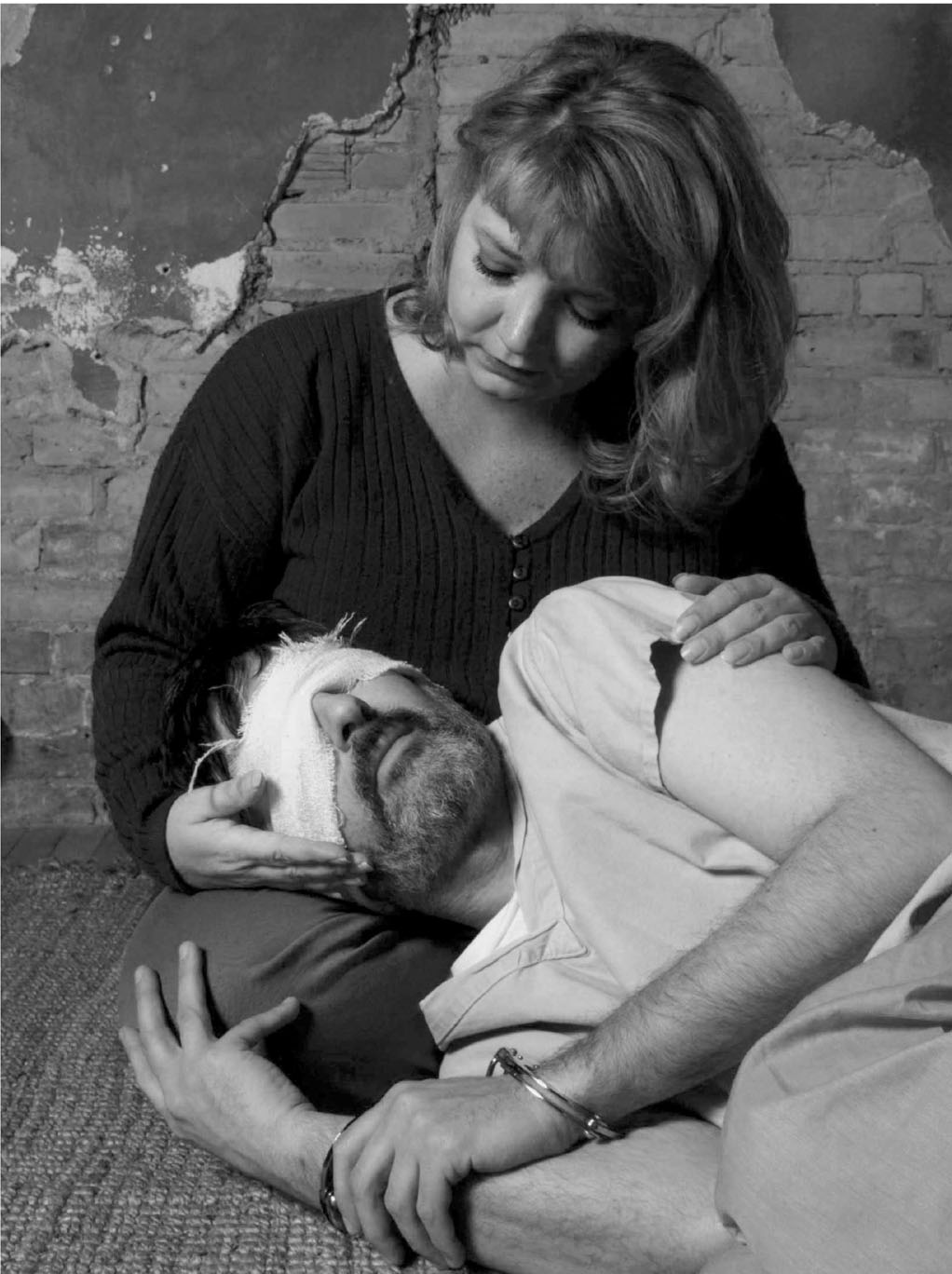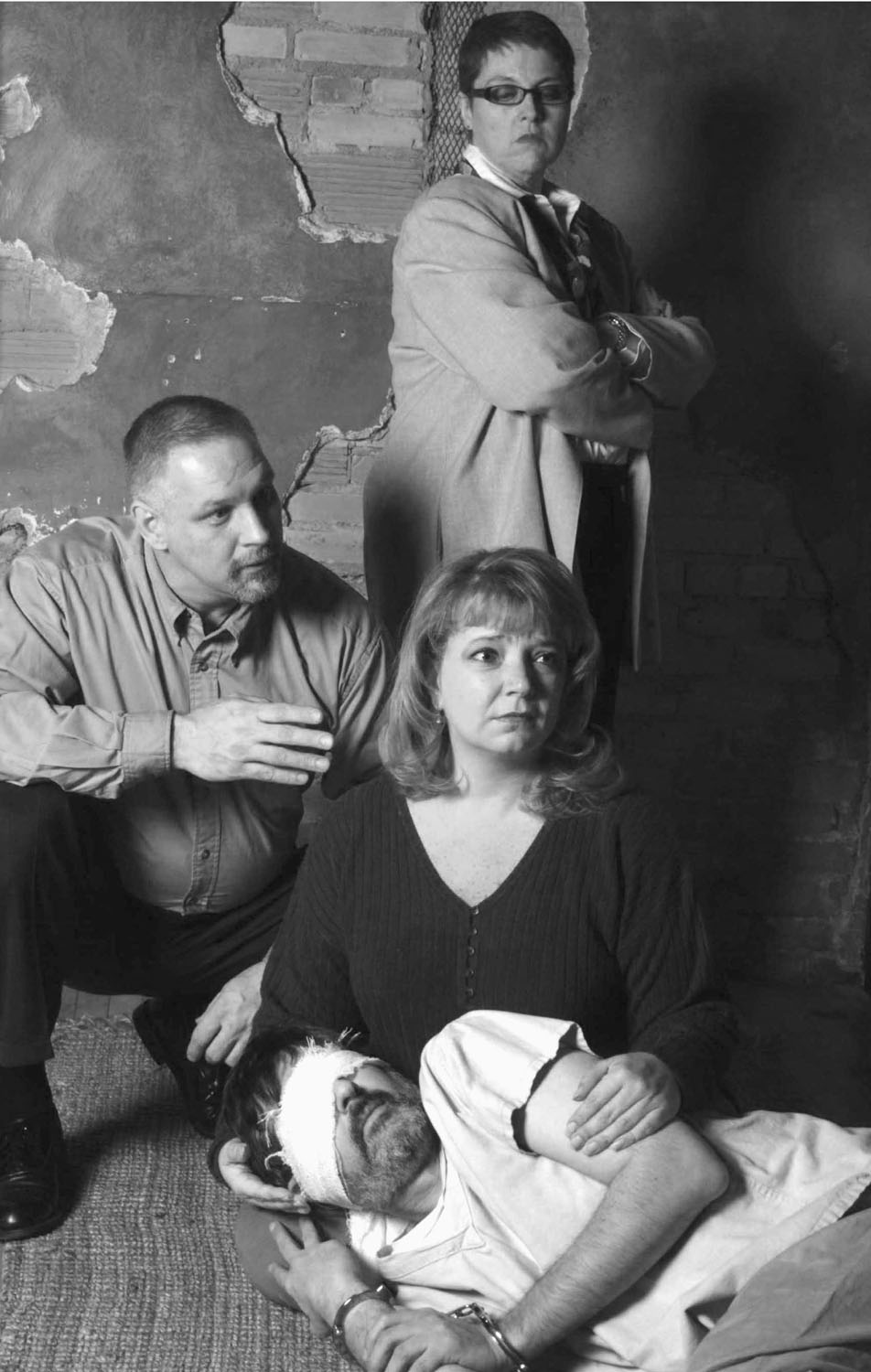No Reprieve: “Two Rooms”
Jaime Kleiman reviews Lee Blessing's powerful and newly timely "Two Rooms" at Theater in the Round. You can see it through January 30.


The reasons I recommend Two Rooms are the same reasons I don’t: the writing is great, but pedantic; the acting is solid, but not stellar; the topics gruesome, yet relevant. It is an exceedingly difficult play for actors. The characters in Two Rooms are symbols, but actors must make them human with very little to draw from in the text. The four-person cast half succeeds, though I suspect they will hit their stride mid-run.
In 1988, Time magazine named Lee Blessing’s drama Best Play of the Year; at that time, the issues in the play – the Lebanese hostage crisis, Arab terrorists, questionable international policies on the part of the U.S. government – resonated with many Americans’ consciences (even, presumably, the editors at Time). Today, more than ever, Blessing’s harrowing examination of foreign relations strikes an all-too-familiar and necessary chord.
The setup is simple: two rooms – one representing the dark dungeons where a blindfolded and handcuffed American hostage is kept; the other is his old office in America, where his grieving wife rids it of all furniture in an attempt to commune with her missing husband. A State Department official tries to keep her anger quiet to avoid national embarrassment; a local reporter tries to get the wife to talk, the idea being that the more pressure the nation puts on the government, the more likely it will be to negotiate her husband’s release.
Blessing is renowned for putting human faces on immense ideas, and Two Rooms does so with gut-wrenching force. When Karen Wiese-Thompson as Ellen, the State Department official, argues that Third World countries both desire and detest Americans’ God-given freedom, the parallels of the rhetoric are obvious, disconcerting, isolating, and saddening. Lainie Wells, played by Ellen Apel, spends the majority of the play vacillating between tears and rage. Her performance could benefit from a wider spectrum of emotions. Ari Hoptman, best known for comedy, plays the kidnapped Michael Wells; his casting by director Matt Sciple was a smart move – such a dire tragedy requires actors who don’t punch it up. Hoptman’s understated approach works, though we never get a complete picture of who this man is. Thompson, also mostly seen in comedic roles, brings a zealous dogmatism to her role as a conflicted yet obedient government worker. She manages to bring broader dimensions to her part than what is immediately obvious in the text. David Coral as the reporter brings very little subtlety and character development to a role that requires it.
The lighting, projections, and minimal set keep the show moving at a good pace, but there is no reprieve from its darkness. You could say that Theatre in the Round is producing a political protest, and it makes you wonder, perhaps even more than you already are, what does it mean to be an American? How are we implicated in our government’s actions? What do we truly know about human nature, the desire for power, and nature itself? Blessing’s play doesn’t offer the answers, only the eternal questions, and they are now, more than ever, worth examination.
Two Rooms runs through January 30, 2005. Theatre in the Round, 245 Cedar Avenue, Minneapolis, 612-333-3010.